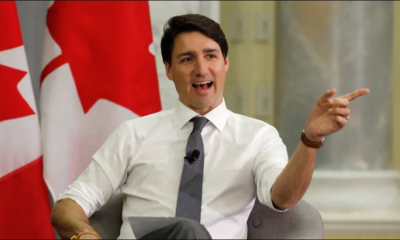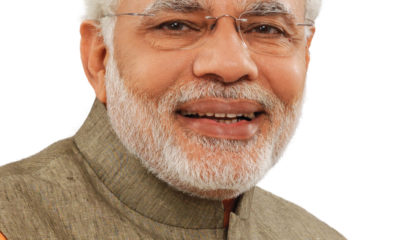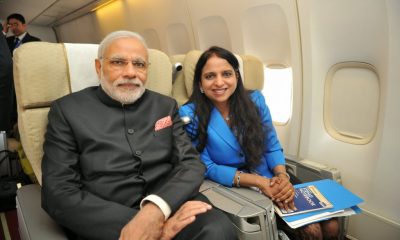World
Republican lawmakers, Cuban exiles unite against Obama

Miami: Cuban exiles in Miami and Republican legislators from Florida, outraged by the White House’s about turn on Cuba, are preparing to block in Congress President Barack Obama’s decision to establish diplomatic ties with Havana.
Senator Marco Rubio and lawmakers Ileana Ros-Lehtinen and Mario Diaz-Balart, all Cuban-Americans, appeared before the media Thursday with the families of Brothers to the Rescue pilots who died in a Cuban air attack in 1996.
At a tense and emotional press conference, Rubio and the congress members had strong words for the president and his agreement to resume immediate diplomatic ties with Cuba after six decades of hostility and mistrust.
The three expressed their anger and feelings of betrayal, sadness, deception, pain and insult that they said overwhelmed them.
In one day, Obama has betrayed half a century of sacrifice for freedom and democracy in Cuba, said a visibly affected Ros-Lehtinen.
In her opinion, Obama’s announcement was an insult to the Cuban-American community that yearns for liberty in Cuba and destroys the efforts of many Cubans who believed in moving the country towards a democratic government that respects human rights.
For Rubio, the agreement that includes cooperation in areas as important as banking and telecommunications was terrible, and for which the US got nothing in return.
Their disappointment and outrage were echoed by many Cuban exiles in Florida who are planning a protest in Miami over the weekend.
Only a few experts and analysts considered the move to resume ties with Cuba after a break of more than 50 years to be a positive step, and remarked that with the agreement, Cuba could no longer blame its problems on the “imperial” giant to the north.
Florida International University Director of the Latin American Studies Department, Eduardo Gamarra, told Spanish news agency Efe that the policy of embargo had run its course and that it was time for it to be lifted.
Frank Mora, who heads the university’s Latin American and Caribbean Center, said that the US had taken an important step and it was Cuba’s turn to fulfil its promise of making changes towards democracy and protecting human rights.
Other experts, like University of Miami Cuban Institute Director Jaime Suchlicki, said they felt that the impact of Obama’s actions would be very limited as Congress would be reluctant to approve his initiatives.
World
Lockdowns in China Force Urban Communities to Defy Censorship and Vent Frustration Online

Shanghai’s rich middle class is leading a wave of online dissent over the strict and prolonged lockdowns imposed in various parts of the country. Chinese internet censorship is struggling as patience is wearing thin in many urban centers, coming up with creative forms of online protests.
Social Media Posts Revealing Lockdown Tension in Shanghai
Drawn-out lockdowns are nothing new in China as authorities insist with the nation’s zero-Covid policy since the start of the pandemic. Currently over This time around, however, metropolitan areas like Shanghai are increasingly difficult to keep quiet, given that its more than 25 million residents have seen weeks of total isolation along with food shortages and many other service interruptions.
Dozens of towns and reportedly over 300 million Chinese citizens have been affected by lockdowns of different severity. As expected, urban netizens have been most outspoken over their difficulties by finding creative ways to get around state censorship and bans placed on topics, news comments and spontaneous campaigns.
Shanghai residents have been using mobile proxies and hijacking seemingly unrelated hashtags to talk about healthcare issues, delivery failures and the overall severity of their situation. The “positive energy” that the Chinese government wants to transmit during the recent prolonged series of lockdowns does not come naturally to those counting food supplies and online censors are working hard to filter words, trending topics and undesired social media sharing.
WeChat groups and message threads are under constant monitoring. Posts questioning the zero-Covid approach have been quickly deleted, including by leading Chinese health experts like Dr. Zhong Nanshan. Video footage is soon censored and protests and investigations are quickly made to disappear.
Where this has not worked, officials have exposed banners with warnings and outright threats like “watch your own mouth or face punishment”, while drones have been patrolling the city skies. Yet, if anything, this has led to further tensions and unspoken confrontation with Shanghai’s educated and affluent middle class.
Creative Online Solutions Harnessing Civic Energy
Announcements by Chinese social media that they would be publishing the IP addresses of users who “spread rumors” have not helped either. Tech industry research has shown that much of Asia’s tech-savvy population has a habit of using mobile proxies and other privacy tools, quickly finding workarounds to browse the internet freely and talk to the world about the hottest topics.
The sheer volume of forbidden posts is already a challenge for the very censorship system, experts explain. Unable to track all trending hashtags, state workers overlook topics that speak about the US, Ukraine or other popular news. Linking human rights elsewhere to their situation, Chinese online dissidents establish their informal channels and “hijack” the conversation to share personal or publicly relevant information about the Covid suppression in their town.
Sarcastic and satirical posts still dominate. Others hope to evade the censors by replacing words from famous poems or the national anthem. One thing is certain – social media, when harnessed with the right creativity, has proven its ability to mount pressure on the government in even some of the most strictly controlled tech environments like China.























